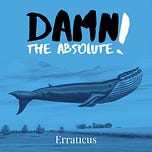Answering questions about what it means for humans to flourish is difficult. Attempting any certainty as to what it means for nonhuman animals to flourish is even more confounding. And yet, these questions have significant overlap.
While some cultures have developed relationships that are responsive to the lives and needs of other animals, some communities—many stemming from modern Western traditions—have tended to view nonhuman animals more like resources. Materials to be managed or controlled for the primary benefit of humanity. From this perspective, the natural world is mechanical, passive, and speechless, seen as distinct from the human world.
But how might attending more to nonhuman perspectives and ways of being contribute to human flourishing? What, if any, moral obligations do we have to the nonhuman members of our particular communities and households?
Jeffrey Howard speaks with Ike Sharpless, a political theorist interested in animal ethics and the history of science and philosophy. He holds two master's degrees from Tufts University. One in law and diplomacy, the other in animals and public policy. In addition to earning a master's degree in political science from UC San Diego, he is also studying to receive his doctorate. He advocates for a more inclusive view of human nature that obscures the divisions between humans and nonhuman animals, inviting us to reflect more on the sensorial encounters we have with other living beings. He takes us on a freewheeling exploration into the challenging territories of animal flourishing, interspecies relationships, and how we might better accommodate nonhuman animals into our political and social systems.
Now some things worth considering. How confident can we be in our understanding of the inner lives of other animals? What are some tangible steps we can individually take to make right our relationships with other animals? Do nonhuman animals have moral agency? In what ways do other living creatures contribute to human wellbeing and what can we do to bolster animal flourishing?
Show Notes
The Spell of the Sensuous by David Abram (1996)
Why Look at Animals by John Berger (2009)
Frontiers of Justice: Disability, Nationality, Species Membership by Martha Nussbaum (2007)
Primates and Philosophers by Frans de Waal (2006)
Zoopolis: A Political Theory of Animal Rights by Sue Donaldson and Will Kymlicka (2011)
The Eye of the Crocodile by Val Plumwood (2012)
Animal Minds and Human Minds: The Origins of the Western Debate by Richard Sorabji (1995)
How Forests Think: Toward an Anthology Beyond the Human by Eduardo Kohn (2013)
"Alone in One of Nature's Threshold Places" by Derek Parsons (2020)
S1E08 Embracing Subsistence Agriculture During the Collapse of Industrial Capitalism w/ Ashley Colby (2021)
S1E07 Charles Peirce and Inquiry as an Act of Love w/ David O'Hara (2020)
"Politics and the Signs of Animal Life: Biosemiotics, Aristotle, and Human-Animal Relations" by Ike Sharpless (2016)













Share this post